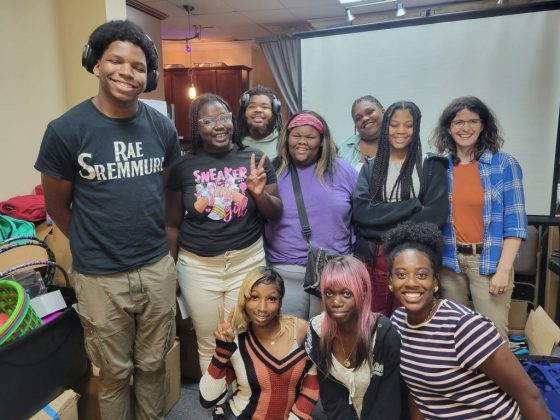Cohort 2025

Trash Pick Up Race Cohort Project
The Summer Leadership Program culminates with the implementation of the cohort’s Community Impact Project. Students came to a consensus to raise awareness and change people’s perspectives about trash in neighborhoods. After healthy discussions and critical debates, the cohort arrived at a consensus that this is a topic that impacts Black communities like Bronzeville disproportionately, with numerous immediate impacts and an ongoing impact on future generations.
To achieve their goal, they planned a Trash Pickup Race at a local park (see flyer below) that gathered over forty community members of all ages who collectively picked up 165 gallons of trash in and around Washington Park. The event involved a 30-minute race where randomly assigned teams competed to gather the most trash in the park and in surrounding residential areas, followed by a presentation where three cohort members shared their personal experiences with trash in their communities, such as how they feel when they see different kinds of trash on their way to school, its impact on their mood, and how the trash in a space can compound because of the message it sends, as well as their concerns about the local and global costs of trash and how it gets in the way of other neighborhood improvements. They called on participants to continue the momentum in personal action started by the collective race; individual actions can inspire others, and everyone deserves beautiful spaces. As the final presenter shared, “trash doesn’t belong here; we do.”
Participants received a choice of reusable water bottles or shopping bags to reuse materials rather than using single-use plastics, and everyone received reusable gloves and wristbands on which they were invited to write personally inspiring messages to remind them that they can beautify their communities whenever they choose. Students partnered with the Chicago Park District’s Pitch in for the Parks program to receive additional cleanup supplies, and they documented and shared their event’s impact as well as structural requests with local alderpeople.
